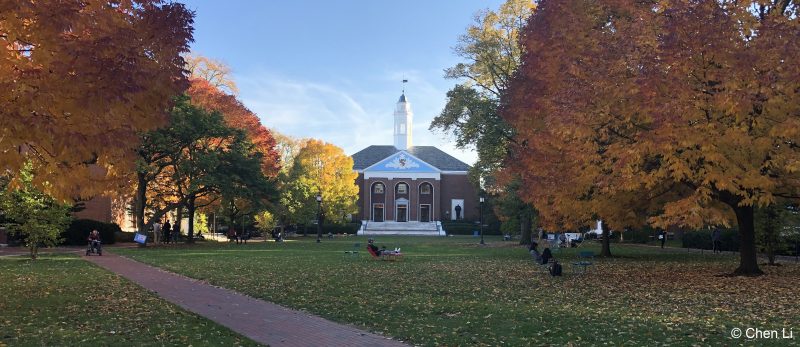Before you apply
First learn about what we do. Think if this is what you really are interested in.
Read Prof. Li’s Research Statement and Mentoring & Teaching Statement.
- We are curious people interested first in how and why animals move the way they do in complex, natural terrain (the terradynamics of locomotion), and next in how to transfer this understanding to improve robots.
- We have a strong focus on fundamental science that originates from good experiments (not pure theoretical modeling).
- We do not do pure robot development. Instead, we build robots and use them as tools (besides many other tools) to discover scientific principles of complex locomotor-terrain interaction systems and in turn apply these principles to make robots move better.
- Scientific research (and any fundamental, creative work) is hard. Read section 1 on Resource page to get an idea. If you just want an “experience” without much time to devote to it, look elsewhere.
- Due to limited time and resource, Prof. Li will only consider those that demonstrate serious interest.
To get an idea of our lab’s focus and recent directions, watch this talk and this video, and read papers and abstracts in the last year.
We do not have funding for undergraduate & Master’s students or visiting students / scholars.
Students in the US are encouraged to explore these funding opportunities (often requires US citizenship or greencard).
International students are encouraged to apply for funding from their department, university, or government programs.
We will be happy to host summer (or even longer) research internships if there is a good fit in research interests and you can obtain your own funding.
Prof. Li’s Mentoring Goals and Mentee Achievements
How to apply
(Please read all below before emailing.)
ALL applicants
Send all the following information in a SINGLE email:
- A brief introduction of yourself
- Why you’d like to do scientific research
- Why you find our research interesting
- How you may contribute to and benefit from our group
- What your longer term career goals and aspirations are
- CV / resume
- Unofficial transcripts (college and above)
- IMPORTANT: Papers, slides, posters, etc. (if any) to show your research / project experience and skills
- For collaborative efforts, focus on your own work, but also explain what others did
- Send a download link if too large to attach
In addition to the above:
PhD & Master applicants
- Submit a complete official application via ME PhD / ME MSE / Robotics MSE by December 15 for Fall admissions
- We will make decisions by mid-Spring, after all applications are reviewed
- Spring admissions are normally not considered; but let me know if you have unusual circumstances
- In application form, list Prof. Chen Li as a faculty member of interest
- Feel free to mention other faculty as well, if you desire
- In statement of purpose, elaborate your interest in Prof. Chen Li’s lab
- For academic interests, choose Systems, Controls & Modeling (this is the lab’s primary area) or Robotics (secondary).
- Feel free to mention other areas as well, if you desire
- Prof. Li will NOT be able to pre-evaluate your application
Undergraduate / Master students already at JHU
- How many hours you plan to devote to lab research each week
- Take into account your other activities (e.g., classes, clubs, sports, work) and do not over-commit
- From past experience of >100 students, we require a minimal effort of 10 hours/week for all lab members
- If you aspire to achieve something substantial (e.g., be a co-author on paper), be prepared to devote much more efforts and proactively learn to become increasingly perseverant, independent, and resourceful and take ownership of your project
- What classes and credits you are taking and what other significant commitments you have
- Too often, students think they can devote time to lab and, after feeling the full load of their over-committed schedule, their lab appearance and efforts quickly fizzles out after a couple of months or even weeks
- When you plan to start and for how long do you plan to work in the lab
- You are strongly encouraged to take at least one my locomotion classes to get a better idea of the field and the approaches. Experience shows that students who do so have a head start in research.
- If you are a master student interested in doing master’s thesis: This is a MAJOR commitment on the student’s part. I only accept a student to do a thesis after he/she at least works in the lab for 1-2 semesters to demonstrate substantial progress towards it. Out of dozens of master students in my lab only 2 have delivered a thesis so far (and 2 more who have done sufficient work though they chose not to write a thesis as they had enough course credits for the degree). They did so devoting ~20 hrs over 1+ year.
Postdoc applicants
- Brief summary of your achievements during PhD
- Your research plan in our lab
- Your career plan after postdoc training
- Contact information of at least three references
Visiting student / scholar applicants
- Period during which you’d like to visit
- How you will fund the visit, whether you are supported your own/your family’s funds or another source
- J-1 VISA is required

